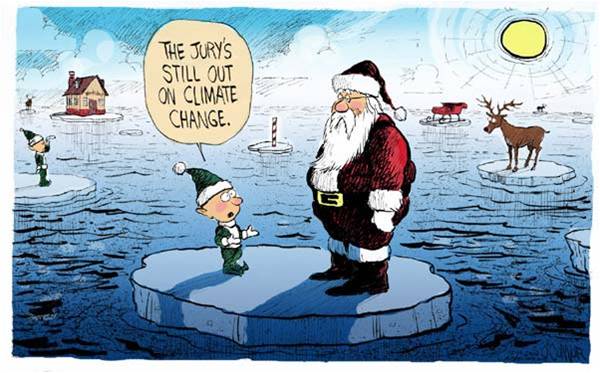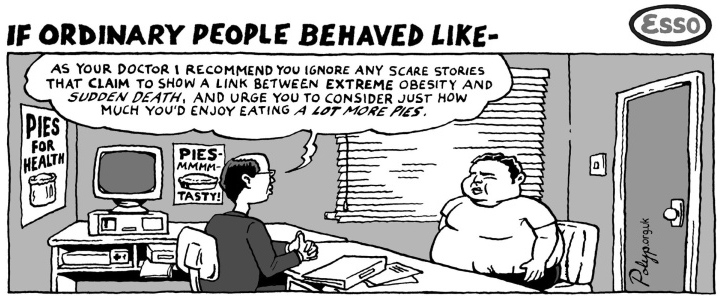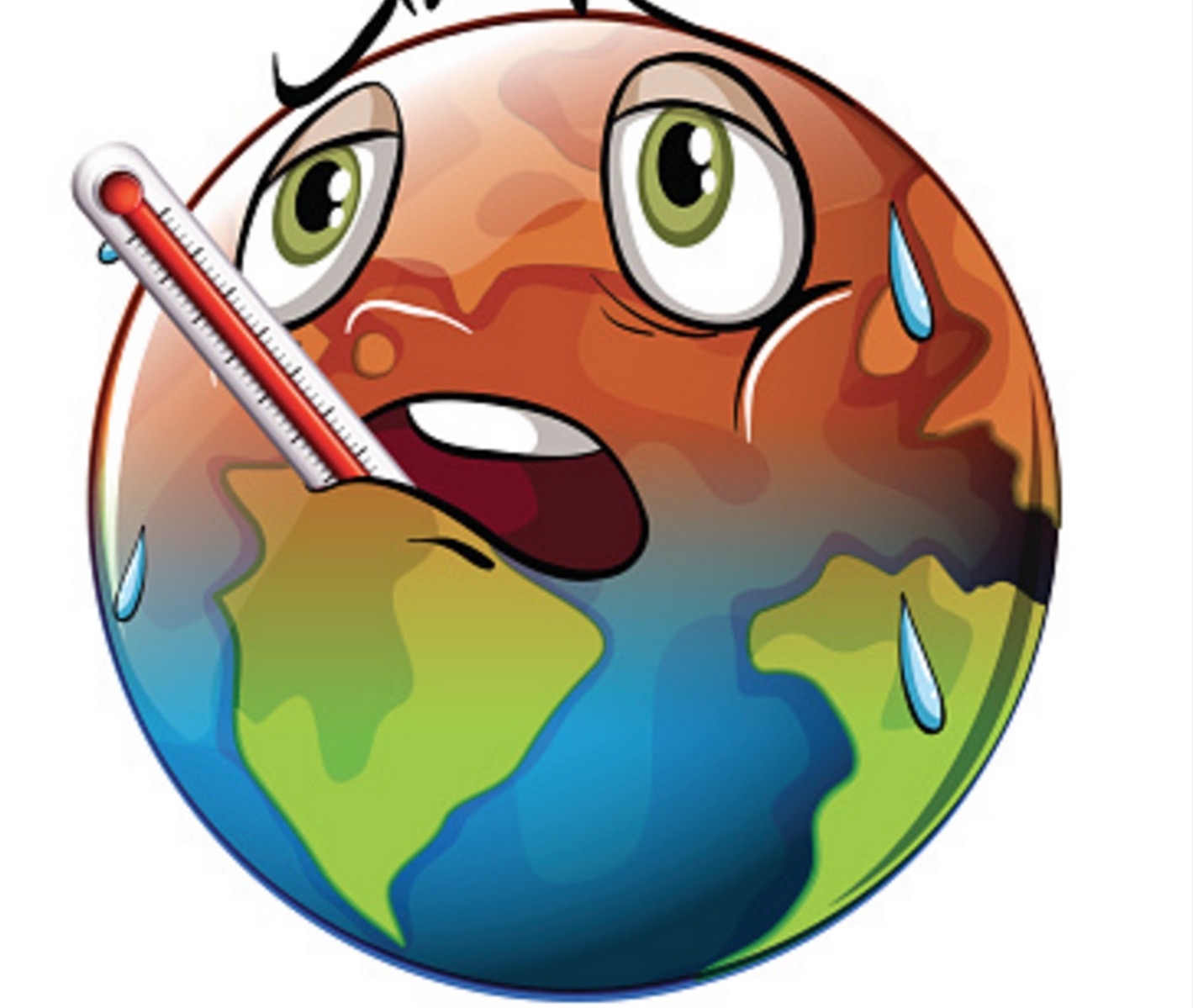THIS POST IS AGAIN ON CLIMATE CHANGE, RATHER THAN ON BIODIVERSITY. THE REASON IS THE LINK MADE BETWEEN CLIMATE CHANGE AND GALILEO IN A RECENT DISCUSSION THAT I CAME ACROSS
Recently I came across a discussion on the site Climate Science Watch. This discussion was triggered by an OpEd in the Wall Street Journal by Mr. Steven E. Koonin, titled Climate Science Is Not Settled. In it, Mr. Koonin argues on basis of a number of arguments that far from being settled, the climate science is not complete enough to direct climate policy. Climate Science Watch, which describes itself as:
Climate Science Watch is a nonprofit public interest education and advocacy project dedicated to holding public officials accountable for using climate research effectively and with integrity in dealing with the challenge of global climate disruption.
I picked up on it, and criticised this OpEd on a number of points, chief among them inaccuracies and fallacies. It argued against the concluding idea of the article, that action should be delayed and more climate research be done.

Climate Science Watch is an open site where everyone can contribute (if the moderator accepts the comment). A number of people contributed. One of the comments referred to the consensus among (climate) scientists with regard to the conclusions of the Intergovernmental Panel on Climate Change (IPCC) and found such consensus not correct. The argument went like this:
And, that is the problem – that you believe that science is based on “the views shared by leading climate science experts.” That approach is wrong. Always. No one, scientist or not, should ever view science as a matter of counting the leading experts. That approach is wrong. Always. No one, scientist or not, should ever view science as a matter of counting the leading experts. The Nazis once published a book with numerous German scientists “refuting” Einstein. Einstein replied that if they had had a legitimate point, one would have been enough. Einstein was right. Science is not settled by counting noses. It is settled by evidence. To “pay attention to the views shared by leading… science experts” would mean the death of science. Or to quote Galileo, “’In questions of science, the authority of a thousand is not worth the humble reasoning of a single individual.” That is science, not counting noses.
Wrong argument
I have always felt something wrong with that argument and started to reason it out. I posted the following comment:
Thanks to Zite, an iPad app, I came across this discussion started on basis of the OpEd of Mr. Koonin. The discussion touched upon the conundrum of the consensus among scientists on the various issues surrounding climate change. The argument against it is that science is not done by counting noses, but is based on evidence. Hence, those that argue against the current stark warnings of climate change – ranging from talking down the risks to flat out denial – refer also in this discussion, as has been done elsewhere, to Galileo, and in this case also to Einstein. It’s not consensus they say that should direct policy, but evidence. Galileo and Einstein are the heroes, because they based themselves on evidence against mainstream opinion and convictions. I can add another scientist to this illustrious group. Charles Darwin, just ahead of Alfred Russell Wallace, published his studies and findings on evolution. He kept to it, despite the ridicule he and the theory of evolution had to endure.
To me, using this argument in the debate on climate change is a red herring. As far as I’m aware, the discussions and conclusions, with identification of uncertainties and risks, is all within scientific debate. The scientists supporting the IPCC conclusions, do that on basis of the evidence, discussed, perused, debated and evaluated.
This is different from the situation that Galileo found himself in, or, for that matter, Darwin. Theories, evidence based, were not accepted by groups who did not advance scientific arguments. Certainly the christian church which denounced Galileo did not do that. While Darwin’s theories were scientifically debated, society was not prepared to just accept it on basis of non-scientific arguments, fed again, mainly, by religious arguments. Galileo’s theories were over time accepted based on ongoing scientific observations, debate and advancements. Similarly, evolutionary theory was accepted over time as the scientific arguments of the day against it did not hold up in view of the evidence produced. The arguments nowadays levelled against evolution are non-scientific.
I would therefore rather turn the Galileo argument on it’s head. When the risks and hazards of greenhouse gases emissions led to the warnings of dramatic climate change, they were not generally accepted. The current high number of scientific noses counted among those who accept the conclusions (inclusive of description of risks and uncertainties) is gained on basis of a similar ongoing process of scientific observations and debate as with Galileo’s and Darwin’s theories, and, presumably, with Einstein’s theories (who is every once in while again proven correct). The examples of Galileo and Darwin support, rather than run counter, against acceptance of the IPCC conclusions.
I agree with the arguments made at the beginning of this discussion on basis of Mr. Koonin’s OpEd. Mr. Koonin warns against taking actions, because according to him the science is not settled. The inaccuracies in his article have already been pointed out. I would like to add two other points.
The first are the observations done in the field. One can always argue that a single storm is not evidence of climate change in action. A single Blackbird breeding a month earlier is not evidence of climate change in action. However, a series of increasing storm intensity, and the advance of spring across the board with two to four weeks is pretty supportive. So are field reports and investigations among residents in for instance in the area where I live, Quang Binh, Vietnam, with climate patterns that are changing, certainly when put into time perspective, which is a crucial difference between the current man-made climate change and natural climatic shifts.
The second is the risk factor. Changing the way energy is produced and consumed does not harm the economy, as a number of recent news articles suggest. Such changes have beneficial side effects that go beyond addressing climate change. Even if you don’t accept the risks and dangers currently projected, the benefits of energy changes in other fields are compelling enough to effect them. If you put that against the risks that downplaying the risks and dangers of climate carries if it still happens to be true – land degradation, diminished agricultural output, biodiversity loss, health problems, to name a few – it doesn’t seem sensible to delay actions.

Do read the Wall Street Journal article of Mr. Koonin, visit Climate Science Watch and read the discussion. Also, don’t forget to watch an excerpt of the Daily Show of Jon Stewart on You Tube, who made fun of and eventually became angry with a U.S House hearing regarding climate change, comparing the Republican-led session to “pushing a million pounds of idiot up a mountain.”


